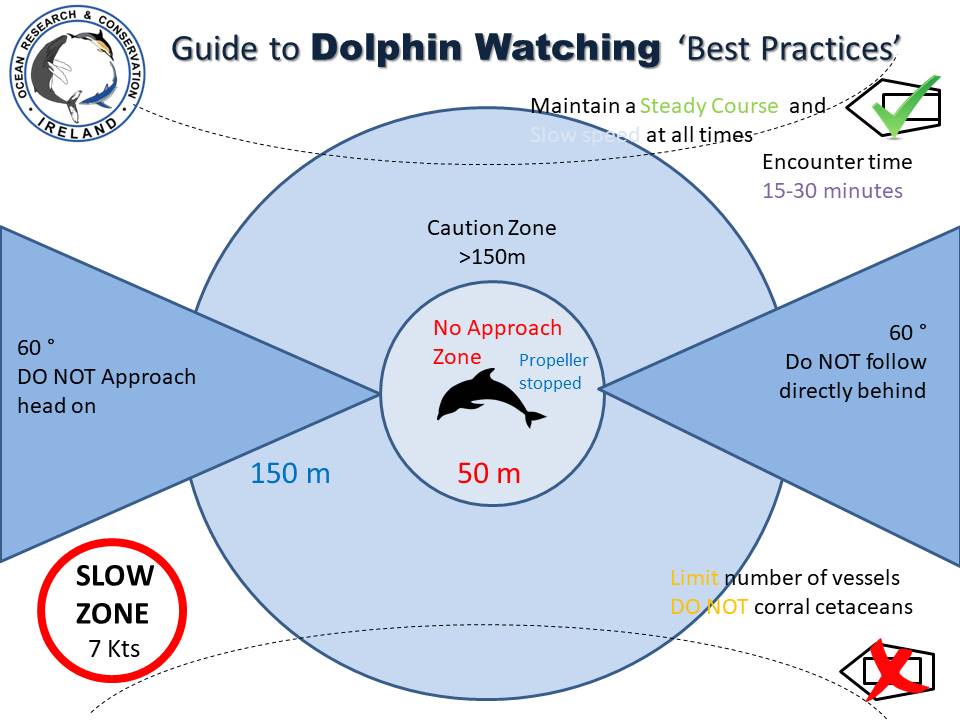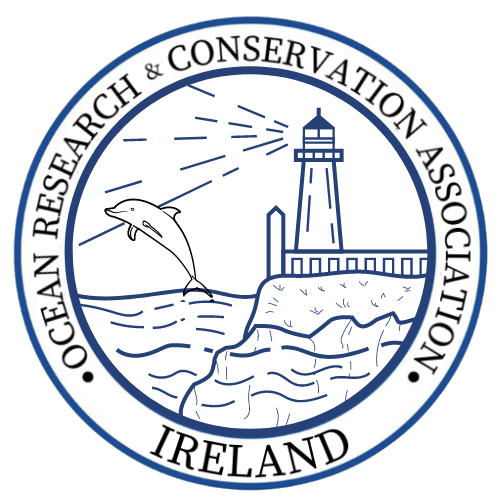
Bottlenose Dolphin Detective Project
Bottlenose dolphins off Roches Point, April 2020. Photographed from Church Bay, Crosshaven by Emer Keaveney / ORCA Ireland.
ORCA Ireland's Bottlenose Dolphin Detective Project involves a long-term monitoring by dedicated researchers and citizen scientists across Ireland and Northern Ireland, from Cork Harbour, to Co. Antrim, that live and work locally, and aim to protect and understand how the dolphins use a network of habitats along the Irish coast. We have been monitoring bottlenose dolphins in Cork Harbour, Ireland's second largest estuary since 2017.
Volunteers and local members can also become "Bottlenose Dolphin Detectives" and log observations of bottlenose dolphins around the Irish coast through our citizen science pocket-conservation-tool the Observers App.
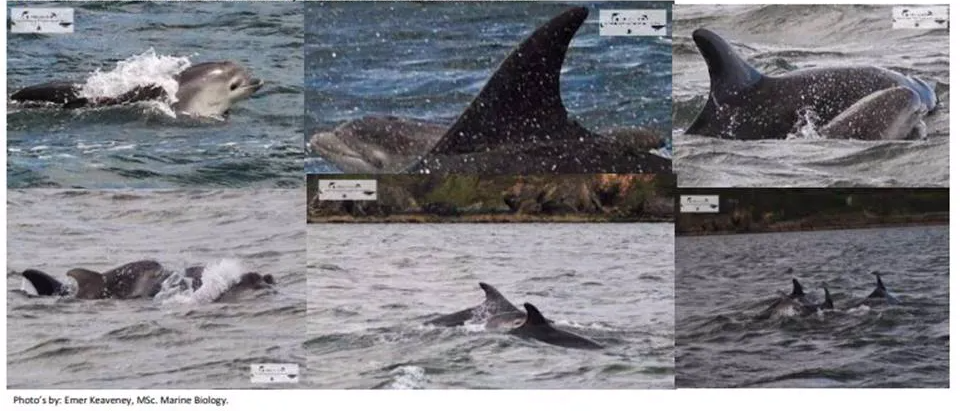
Cork Harbour is an important habitat fro a number of semi-resident and part of a network of habitats for more transient dolphins (O'Brien et al., 2009; Ryan et al., 2010). In particular, Cork Harbour is an ideal foraging habitat for transient dolphin mother/calf pairs . In 2017, 25 individuals were identified out of a group of 40 dolphins, which included 9 mother/calf pairs.
Bottlenose dolphins have been observed in Cork Harbour by students scientists from University College Cork (UCC) since 2011, through land-based monitoring. Now, with the help of local eco-tour operators such as Ocean Escapes and local residents at Roches Point, and Crosshaven, ORCA Ireland's marine mammal scientists have collected an identification catalogue of individual dolphins through photo-Identification methods, using the dolphins dorsal fins like fingerprints, to monitor the transient bottlenose dolphins that are occasionally seen. Photo- identification research has been used to identify individuals based on notches and nicks present on dolphins dorsal fins. This allows ORCA scientists to understand which individuals use the harbour, what other dolphins they associate with and, when new calves are born.
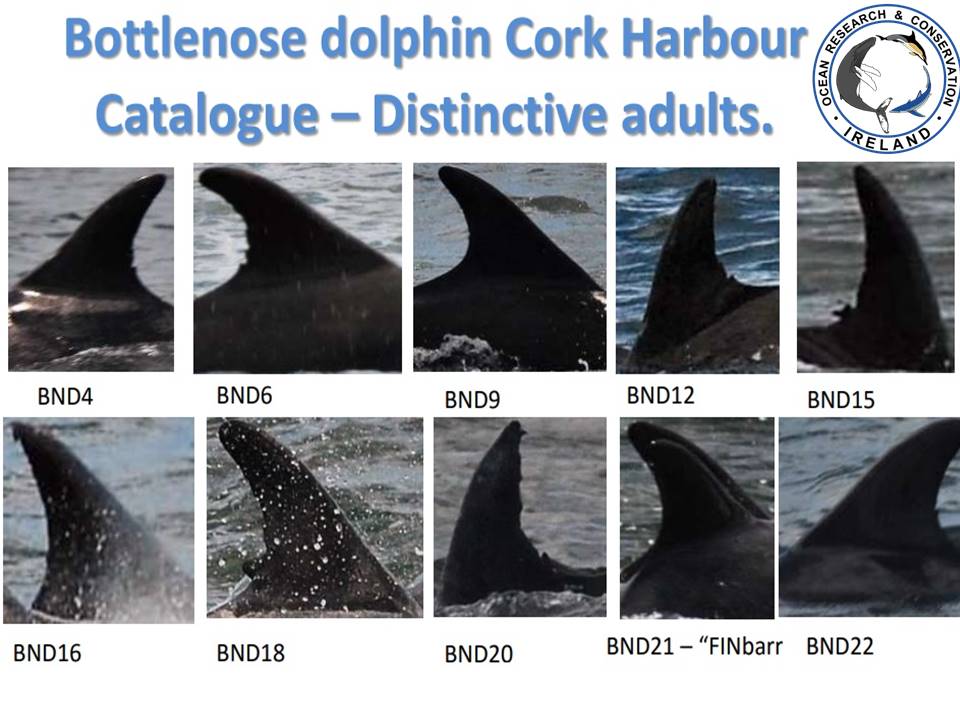
We had no encounters with bottlenose dolphins in Cork Harbour for two years, and in 2020, 2021 and now 2022, they returned.Cork Harbour is the second largest natural harbour in the world after Sydney, Australia and is heavily industrialised with shipping, petrochemical, pharmaceutical and electrochemical industries situated on its outskirts. Dolphins using Cork Harbour face a number of threats, including ship strike, pollution from noise and plastic debris, and disturbance from recreational and eco-tour boats.
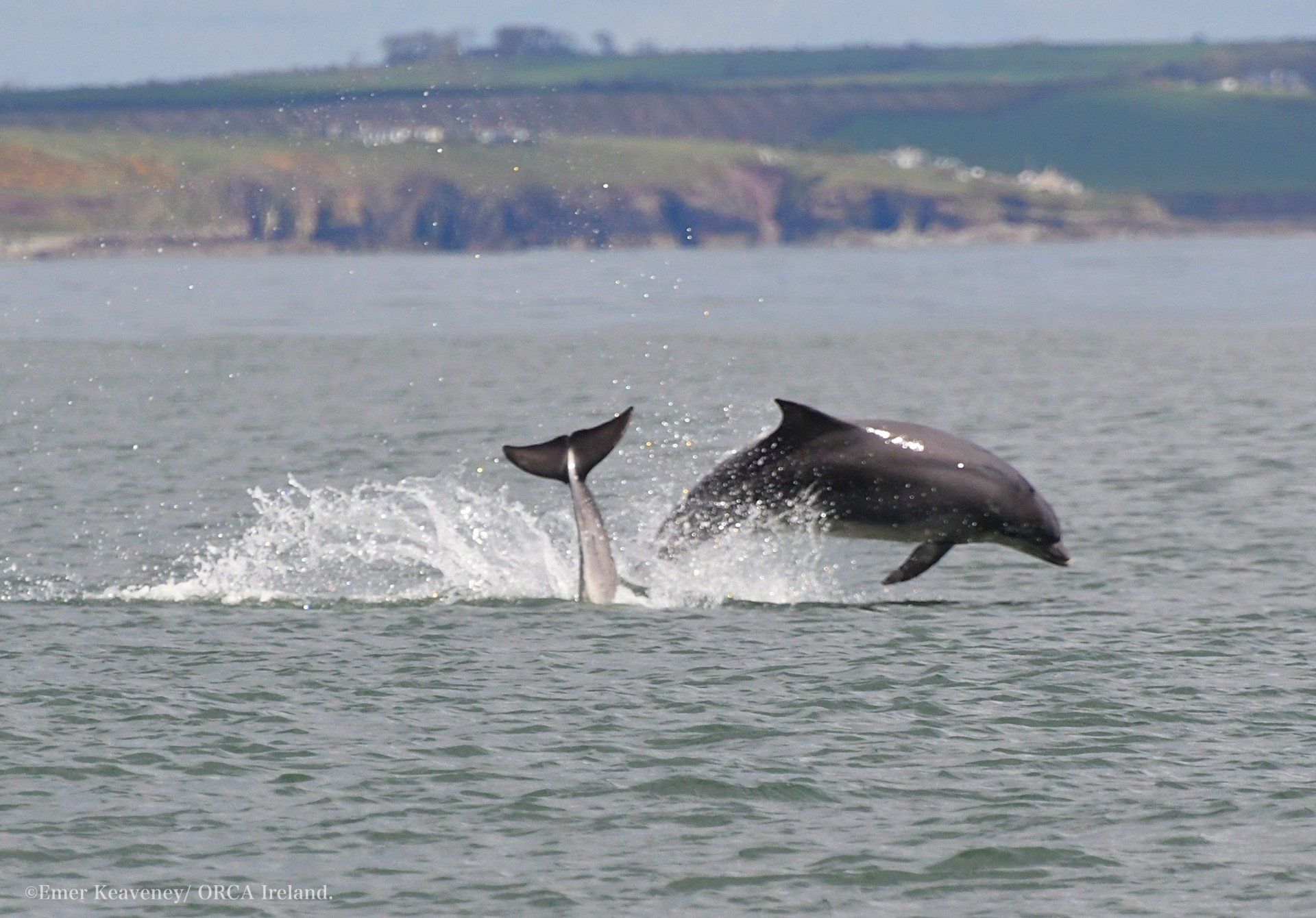
We ask that members of the public remember to follow our guidelines on "Best Practices" for boating when they encounter the dolphins and to please report any sighting of them immediately to us via the Observers App or directly through our website in "Make a Report".
